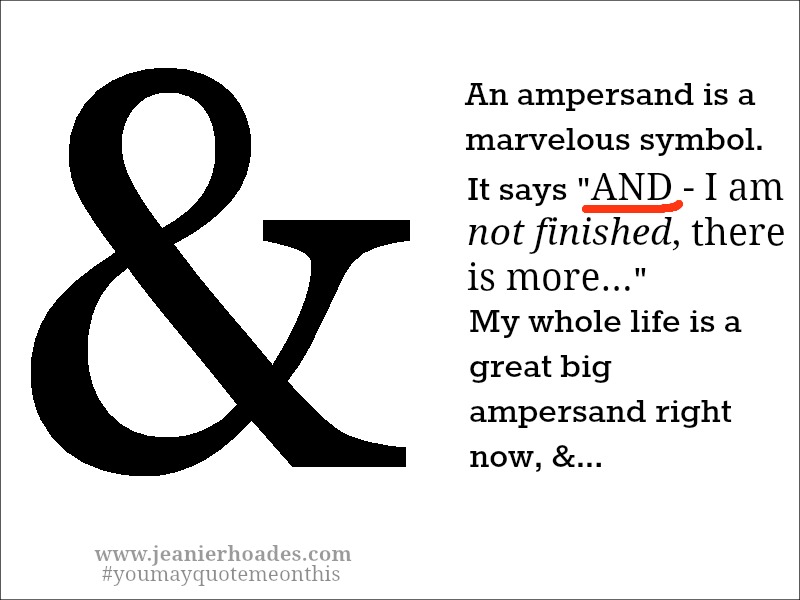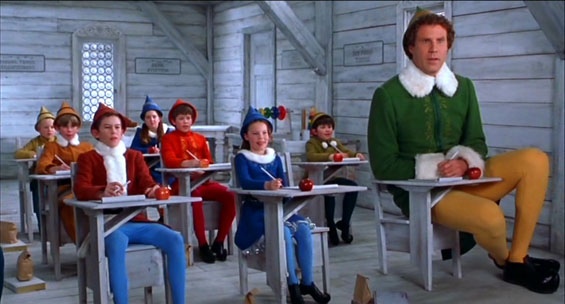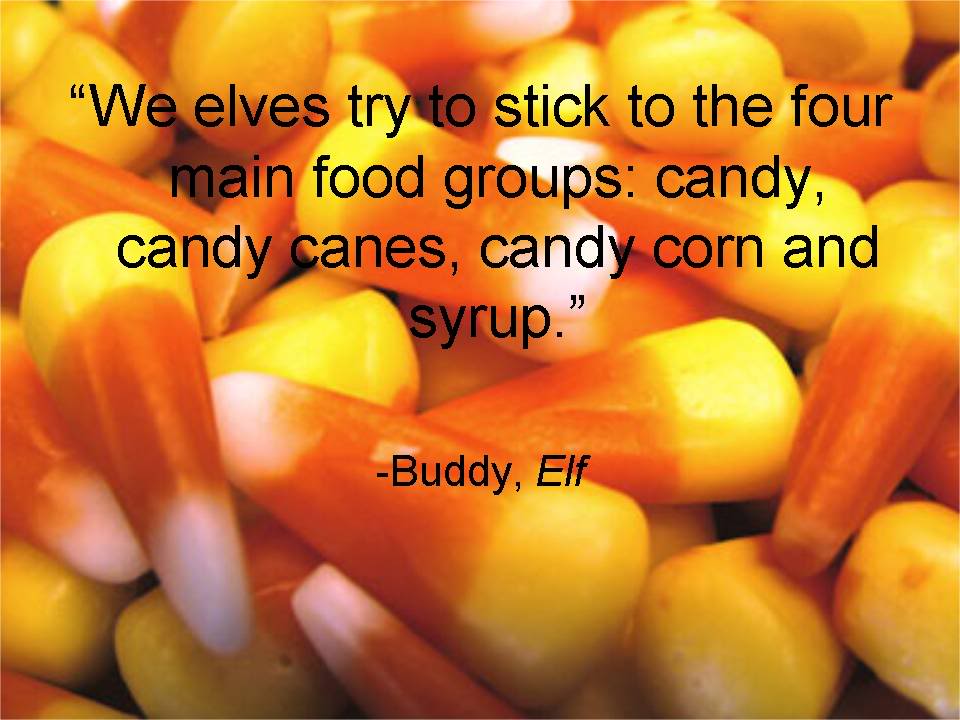#dontcountyourselfoutyet #Godisntfinishedwithyouyet #purposeremains #Hewhobeganagoodworkinyouwillbefaithfultocompleteit #itstimeforanewthing
Tag Archives: quotes
4 Days Out ~ You Better Not Pout!
Why I love
Buddy the Elf
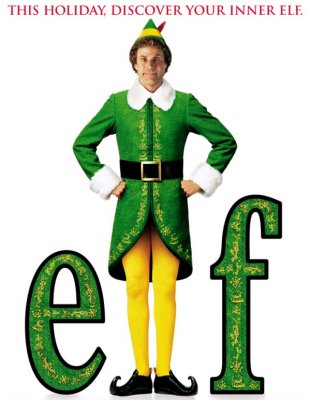
I’m a cotton-headed ninny-muggins!
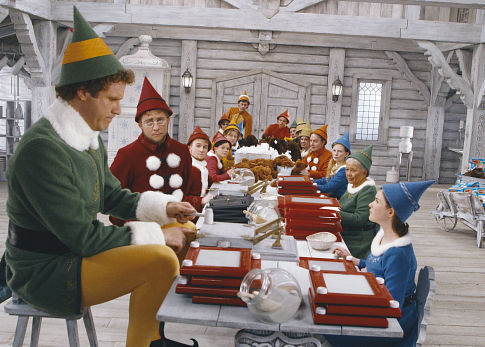
Deb, you have such a pretty face. You should be on a Christmas card!
I think you’re really beautiful and
I feel really warm when I’m around you and
my tongue swells up.
First we’ll make snow angels for 2 hours, then we’ll go ice-skating, then we’ll eat a whole roll of Tollhouse Cookie Dough as fast as we can,
and then
we’ll snuggle.
 {SON of a NUTcracker!}
{SON of a NUTcracker!}
I just like to smile, 
{answering the phone} Buddy the Elf, what’s your favorite color?
I’m sorry I ruined your lives and crammed eleven cookies into the VCR.
S A N T A ! ! ! {Omg!} Santa’s coming!
I know him!
I KNOW HIM!
~~~~~~~
~~~~~~~
NOTE TO READERS: In case you need to know, and I, for one, do…the days start getting longer again starting today! WINTER! Shorter nights! Thank goodness!
Quoteable Home
Who said this? “Be it ever so humble, there’s no place like home.”
“…in this house…we are living our days in contentment and grace…” Alexandra Stoddard
“Home should be a very personal oasis, a refuge from trends, prentiousness, ‘in and outs.’ Home should reflect the things we love and the people we care about.” Joann R. Barwick in House Beautiful, January 1989
“‘Second hand,’ or ‘already loved.'” Mary Emmerling
“Economy often begets creativity.” Mary Emmerling
[In home decor], “I work for an unstudied, unpackaged effect.” -Winslow
A pine table is a proper thing, but a pine table that pretends to be black walnut is an abomination.” Ella Church Rodman
“Start Fresh.
Strip your place of everything – remove light fixtures, ugly hardware, hinges, doors, moldings, carpets – anything that is ugly and you don’t like it.” Alexandra Stoddard in Style for Living
This whole home-making thing started with this post.
pictured from top: a corner of Robin’s house featuring the oak clawfoot pedestal table some one gave to Dave and Tara who gave it to me before I gave it to Joe and Robin; a rooster Robin recently purchased on a treasure-shopping expidition; Hunter jumping on the couch this morning
“Do churches do to people what zoos do to animals?”
That post title, my friends, was just one of the amazing “thought-questions”posed in Mark Batterson’s upcoming tome.
I put aside both of the books I had been reading and skipped over the one I was suppose to start next to read a pre-released copy of Batterson’s Wild Goose Chase: Reclaim the Adventure of Pursuing God. Once I picked it up for a quick perusal, I was hooked.
He explains the title:
Celtic Christians had a name for the Holy Spirit–An Geadh-Glas, or ‘the Wild Goose.’ The name hints at mystery. Much like a wild goose, the Spirit of God cannot be tracked or tamed. An element of danger, an air of unpredictability surround Him. And while the name may sound a little sacrilegious, I cannot think of a better description of what it’s like to follow the Spirit through life. I think the Celtic Christians were on to something…
The author contrasts animals he got to observe living wild and free while in the Galapagos Islands (which he described as “Edenic” and a place that caused him to feel a great affinity to Adam) in contrast to those he was observing in a zoo a couple of months later. No matter how you slice it, those zoo animals are caged. The whole book plays off the premise that we live our lives in 6 “cages”: responsibility (where God-passions get buried beneath day-to-day living), routine (following our plans, never seeing another way), assumptions (those truths you begin to believe such as I could never…, I can’t…, I’m not…when you are living from your left-brain memory rather than your right-brain imagination). Then there are the cages of guilt (defeat over all our past sin and missteps), failure (doesn’t this one stink?? – trying and failing stops us from ever trying again), and finally the cage of fear (living life on the defense rather than the offense) and goes on to explore both Biblical and modern-day people who were able to break free of those confines.
Each chapter is complete and very-good-sermon-like, but Mark Batterson ties them all very well together as he leads us on the chase for the Wild Goose, living a life of adventure by the leading of the Holy Spirit.
It’s an easy and quick read, with great humor, some interesting character study and poignant story-telling. It’s kind of like Eldridge’s Journey of Desire or The Sacred Romance, but waaaaaaay shorter and more quickly to the point. He writes in a relaxing, conversational way that was not only engaging for the reading, but seemed to invite me into prayer as I read. That is probably what surprised me the most: how much I was drawn into an awareness of the Presence and His leading as I was reading. Batterson really had a way of posing thoughtful questions that immediately caused me to want to hear from God on the issue or confess and repent or ask for an answer or pray a commitment or something. I prayed my way through most of the book. Laughed and cried, too.
In that regard, I wholly recommend this book. It isn’t about earth-shattering new revelation necessarily, but it is a call to that which the Spirit of God speaks to us constantly and we often ignore – due to life’s “cages.” That is why it rings so true, I guess, and why my heart took a fancy to the book, the idea and the call to chase the Wild Goose. http://chasethegoose.com
Read it!…Jeanie
NOTE TO SELF: I am part of something bigger and more important than me: the cause of Christ for this generation.
SOME THINGS I UNDERLINED FROM THE FIRST HALF OF THE BOOK:
We try to make God fit within the confines of our cerebral cortex. We try to reduce the will of God to the logical limits of our left brain. But the will of God is neither logical nor linear. It is downright confusing and complicated. p.2
A part of us feels as if something is spiritually wrong with us when we experience circumstantial uncertainty…But [it] goes by another name: adventure. p. 2
…inverted Christianity. Instead of following the Spirit, we invite the Spirit to follow us. p. 4
…as I looked through the protective Plexiglas window at a four-hundred-pound caged gorilla: I wonder if churches do to people what zoos do to animals. p. 5
Just like the rich young ruler, we have a choice to make…We can stay in our cage, end up with everything and realize it amounts to nothing. Or we can come out of our cage and chase the Wild Goose. p. 10
Chapter Two: Goose Bumps p. 15
A few years ago I figured out how I want to die. p. 15
But I do want to die doing what I love. I am determined to pursue God-ordained passions until the day I die. p. 16
Start praying. Prayer makes us spiritually fertile. And the more we pray, the more passionate we become. Our convictions grow stronger and our dreams grow bigger. p. 26
When Christianity turns into a noun, it becomes a turnoff. Christianity was always intended to be a verb. p. 29
I don’t want to do things I am capable of doing. Why? Because then I can take credit for them. I want to see God do things in me and through me that I am absolutely incapable of so I can’t possibly take credit for them. p. 35
Concerning Nehemiah: If you are faithful in Babylon, God will bless you in Jerusalem. p. 40
Have you ever experienced an epiphany – a moment when God unexpectedly and unforgettably invaded the monotony of your life…The Celtic Christians referred to these kinds of moments – moments when heaven and earth seem to touch – as thin places. Natural and supernatural worlds collide. Creation meets creator. Sin meets grace. Routine meets the Wild Goose. p. 46
One name for God in Rabbinical literature is The Place. p. 47
Altars help us remember what God doesn’t want us to forget. They give us a sacred place to go back to. p. 48
change of place + change of pace = change of perspective p. 50
I know from experience that you can do the work of God at a pace that destroys the work of God in you. p. 53
Sabbath… creates a holy margin in our lives…The word Sabbath means “to catch one’s breath.” p. 54
Hurry kills everything from compassion to creativity. p. 57
We need to quit praying out of memory and start praying out of imagination. p. 60
Has God ever called you to throw something down? Something in which you find your security or put your identity? It’s awfully hard to let go, isn’t it? It feels like you are jeopardizing your future. And it feels like you could lose what is most important to you. But that is when you discover who you really are. p. 65
You have to be willing to let go of an old identity in order to take on a new identity. p. 66
Pride is offended when assumptions are challenged. Humility welcomes the challenge because the desire to know God is greater than the need to be right. p. 75
It’s never too late to become who you might have been. p. 79
